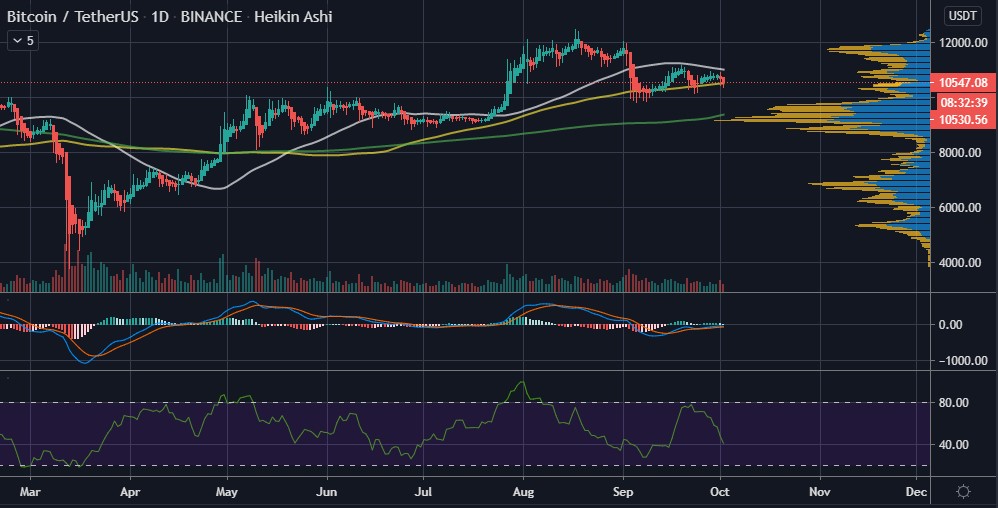Better regulation needed to stop crypto tax evaders from running wild
U.S. regulators are starting to track crypto more seriously, and that’s a good sign for all crypto holders.

Image courtesy of CoinTelegraph
Antivirus software pioneer John McAfee, the founder of McAfee Associates — the company that released the first commercial antivirus software, McAfee VirusScan, in the late 1980s, contributing to the birth of multibillion-dollar industry — was indicted on five counts of tax evasion and five counts of willful failure to file a tax return, which could result in a maximum sentence of 30 years if convicted. He could also expect to pay U.S. taxes and penalties, according to the United States Department of Justice. The DOJ’s charges were announced shortly after the U.S. Securities Exchange Commission revealed it had brought civil charges against McAfee related to cryptocurrency offerings.
McAfee has been a controversial figure in several countries, not only in the U.S. He went into "exile" after claiming he had been charged with using cryptocurrencies against the U.S. government, foolishly tweeting last year from a boat, boasting about the fact that he hadn’t filed any U.S. tax returns.
According to the DOJ’s indictment — which was unsealed following his arrest in Spain, where he is pending extradition to the U.S. — McAfee failed to file tax returns for four years, from 2014 to 2018, despite earning millions from consulting work, speaking engagements, cryptocurrencies and selling the rights to his life story to be used in a documentary. McAfee is accused of evading tax liability by having this income paid into bank accounts and cryptocurrency exchange accounts that were in the names of nominees. He allegedly also concealed assets in the names of others, such as a yacht and real estate property.
The sale or exchange of cryptocurrencies, the use of cryptocurrencies to pay for goods or services, and holding cryptocurrencies as an investment generally have tax consequences that could result in tax liability. Taxpayers who do not properly report the income tax consequences of cryptocurrency transactions may be liable for taxes, penalties and interest. The Internal Revenue Service oversees the enforcement of the global taxable implications of cryptocurrency transactions via a virtual-currency compliance campaign led by its Withholding and International Individual Compliance practice area. The campaign aims to address global tax noncompliance related to the use of cryptocurrency through “multiple treatment streams, including outreach and examinations.”
Monitoring the IRS’s cryptocurrency tax collection initiatives
Nevertheless, despite the DOJ’s and IRS’s recent success in unveiling McAfee’s concealed cryptocurrency-related tax evasion, two reports — one released in late September by the Treasury Inspector General for Tax Administration, or TIGTA, and the other released earlier this year by the Government Accountability Office, or GAO — sound the alarm on how the IRS’ efforts to ensure compliance with tax obligations for cryptocurrencies have been inadequate.
These reviews were initiated to evaluate the IRS’s efforts to ensure the accurate reporting of cryptocurrency transactions, in light of the fact that the use of cryptocurrency as a payment method is growing in popularity and, amid the COVID-19 pandemic, is emerging as an alternative asset to the U.S. dollar or other fiat currencies.
Related: Not like before: Digital currencies debut amid COVID-19
Both the TIGTA and GAO audit reports find that the IRS has limited data on tax compliance for cryptocurrencies because of limited information reporting by third parties, such as financial institutions and crypto exchanges, due in part to unclear requirements and to thresholds that limit the number of cryptocurrency users who are subject to third-party reporting.
Related: The US plan to monitor illegal crypto activities more sufficiently
These audits focused on cryptocurrency exchanges because they play an important role in the transferability and stability of cryptocurrency by facilitating the buying and selling of cryptocurrencies for customers in exchange for fiat currency or other cryptocurrencies. While these exchanges are in a position to provide important information for use by the IRS in tax administration, information reporting on cryptocurrency transactions from the exchanges is lacking.
Related: Virtual currency exchanges and US customers beware, IRS is coming
The IRS’s most recent tax gap study, issued in September 2019, found that noncompliance varies with the amount of information reported by third parties, such as employers, banks and partnerships. Items subject to substantial information reporting and withholding (e.g., wages) have a net misreporting rate of 1% for individual income tax. However, the net misreporting rate for items subject to some information reporting (e.g., partnership income) is 17%, and the net misreporting rate for items subject to little or no information reporting (e.g., non-farm proprietor income) is 55%.
Related: Illicit crypto transactions are getting more attention from the government
Monitoring OECD’s digital tax proposal
Two years ago, during the G-20 meeting in Buenos Aires, the world’s economic leaders agreed that technology such as cryptocurrency and blockchain, given its borderless nature and increasing ability to automate tasks, is significantly changing the global economy.
The G-20 settled on characterizing cryptocurrencies as assets, thereby setting the stage for cryptocurrencies to be adopted as a new digital asset class. The group confirmed its commitment to following the Organization for Economic Cooperation and Development’s Base Erosion and Profit Shifting framework, studying international nexus and profit-allocation concepts for taxing the digital economy, and developing a new approach by 2020 — when the COVID-19 pandemic forced governments worldwide to focus on bringing blockchain tech to their financial services.
Related: Latest pronouncements from OECD, EU & G20 allow fintech to flourish
Nevertheless, OECD’s global digital tax approach concerning international nexus and profit-allocation concepts has drawn criticism from the National Taxpayers Union, which is laid out in a new issue brief in response to a leaked draft of OECD’s most recent proposal. The NTU’s new report states that the plan put forward by OECD is aimed at U.S. consumers and businesses that operate internationally, attempting to levy a minimum tax on a poorly defined tax base. The NTU and its sister organization the NTU Foundation have previously expressed concerns about the approach that international bodies such as OECD are taking regarding taxing the digital economy. As NTU’s president, Pete Sepp, explained:
“One practical step should be to restore transparency and stakeholder engagement in the further development of Pillars One and Two — two principles which OECD had heretofore largely embraced but has recently made a low priority. Equally troubling is that there are currently no concrete plans at OECD to comprehensively assess the financial and compliance burdens of the proposals until after they are approved. […] Backward-facing tax policymaking is rarely a formula for success.”
The views, thoughts and opinions expressed here are the author’s alone and do not necessarily reflect or represent the views and opinions of Cointelegraph.
Selva Ozelli, Esq., CPA, is an international tax attorney and certified public accountant who frequently writes about tax, legal and accounting issues for Tax Notes, Bloomberg BNA, other publications and the OECD.
Comment: I think they are getting their wish, as explained in one of my previous posts:
US attorney general releases guidelines for enforcing crypto laws. Help may be on the way!
Original article posted on the CoinTelegraph.com site, by Selva Ozelli.
Article re-posted on Markethive by Jeffrey Sloe































